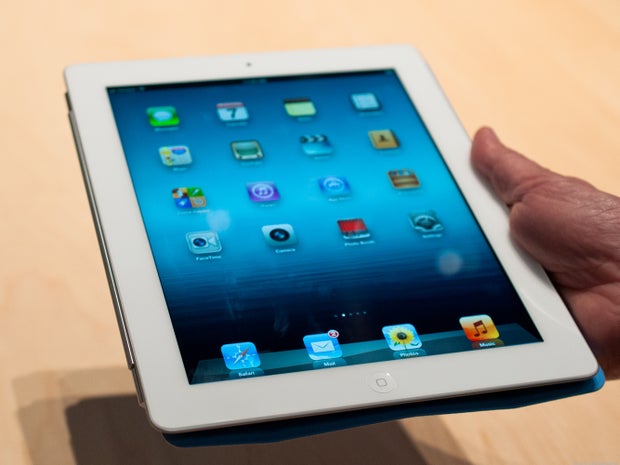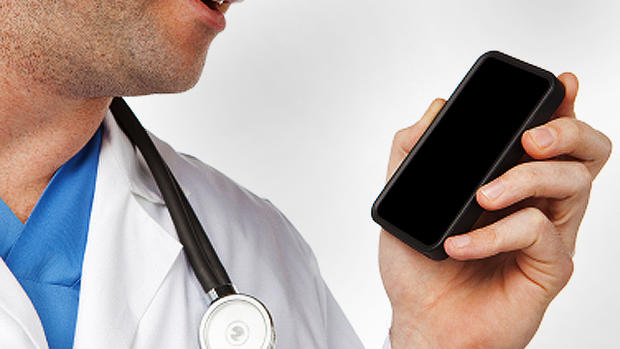Study: iPads let doctors work more efficiently
(CBS News) iPads not only make doctors feel more efficient at their jobs, the device actually improved their work flow according to a new study published in the Archives of Internal Medicine.
Experts: iPad, computer screens may cause computer vision syndromePictures: Health 2.0? 7 apps and sites that may save your life
Researchers gave iPads to 115 University of Chicago internal medicine residents so they could access electronic patient records, the hospital's paging system to order tests, and medical publications for reference information. Other types of tablet were not included in the study.
The researchers were concerned the shift of many hospitals to electronic medical records actually made things more difficult for doctors, because it increased time needed to complete "indirect care" tasks like updating medical records, and holds up doctors when waiting for an available computer.
Dr. Mike Klein, a surgery resident at SUNY Downstate Medical Center in Brooklyn who wasn't involved in the study, told HealthPop in an email, "The problem with desktop computers is that anyone in the hospital can access them, so they need to be password protected." He says that means residents need to log on and wait for a few minutes for the computer to load every time they update a patient's chart. "Multiply this by 30 or 40 times per day and it becomes a big problem."
For the new study, the researchers were interested in seeing whether having better access to these tools through device would help the residents perform their jobs better. Four months after giving out iPads, 90 percent of the residents said they were using the tablets for work, and most of them said they used it every day. More than three quarters of residents said the iPads had helped them save about an hour a day, and 68 percent said delays in patient care were prevented because of the tablet.
"Although there can be no substitute for focused attention to patients, being by the bedside using a tablet seems to me better than being in a distant charting room," Dr. Michael Katz said in an accompanying commentary in the same issue.
Using iPads also appeared to help doctors order tests earlier. Though there was barely any difference between the total number of patient orders placed before and after implementing iPads, 5 percent more orders were placed before 7 a.m. rounds. Eight percent more orders were placed before the team was scheduled to leave work. However, it is unclear if the orders were placed on the iPad or on a desktop computer, the researchers said.
This isn't the first time the iPad has helped doctors. In June 2010, Wired reported that Japanese surgeons used the tablet during a procedure. Even though the gadget was wrapped in a cling-film for sterilization purposes and the medical professionals wore latex gloves, the doctor was able to pinch and zoom at the images to get a closer look.
Before medical professionals all run out and buy a tablet, there are some barriers to using iPads in hospitals. Yan Xiao, from the Baylor Health Care System in Dallas told Reuters Health that not all electronic health record systems are designed to work on tablets, and using the device in hospitals might also raise security concerns.
Residents should also be aware that staring at screens for too long can cause computer vision syndrome, name for a confluence of eye issues such as strain, headaches, blurred vision and dry eyes, Healthpop reported.

